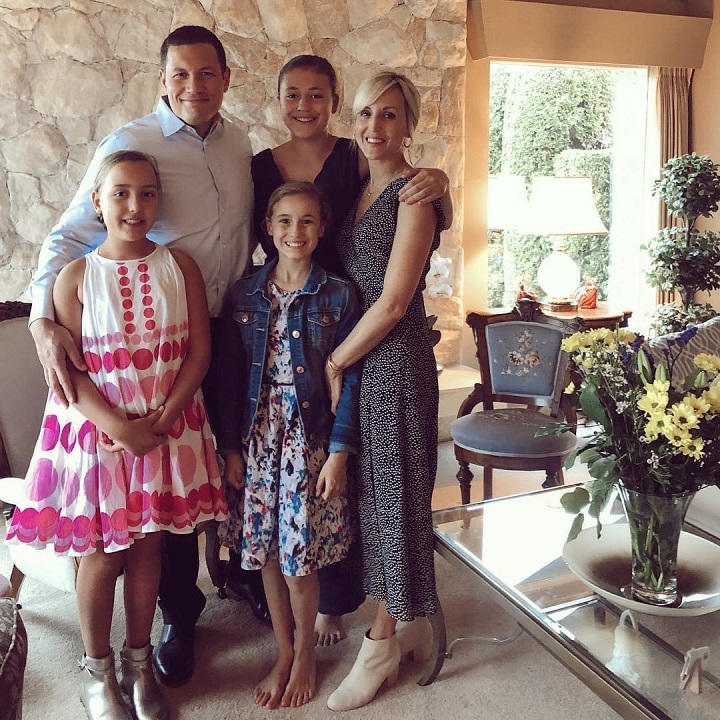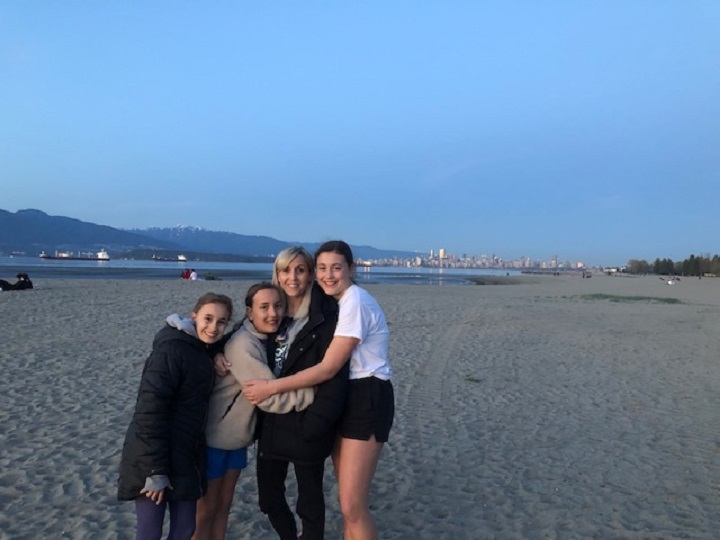A Vancouver nurse says her perspective of COVID-19 has completely changed after being intubated for a week after catching the virus.

She joined the Ryan Jespersen Show on 630 CHED to tell her story.
In mid-March, Jaclyn Robinson’s husband Kirk began complaining he felt really rundown with a fever and a cough. As a nurse, she knew those were signs of COVID-19 and she felt confident she could manage his symptoms at home safely.
While Kirk’s case turned out to be rather mild, Jaclyn found herself being intubated only days later as she struggled to breathe because of the virus.
LISTEN BELOW: Jaclyn Robinson joins the Ryan Jespersen Show on 630 CHED
While they distanced and cleaned as best they could, Jaclyn started feeling sick about four days after her husband did. As a nurse, she was able to be tested right away. Eight hours after her test, she got the call she had tested positive for COVID-19.
As a woman in good shape, Jaclyn figured she would quarantine with her husband in the bedroom away from their three kids. Luckily, their kids are a bit older, so they were able to fend for themselves a bit.
The two were staying away and working to keep their fevers down. But a few days later, everything changed.
“I woke up in bed and I was so short of breath, I couldn’t even get through a sentence. I got up to the bathroom and looked in the mirror. I was so pale.”

Jaclyn called an ambulance and they got her on oxygen and prepared to take her to the hospital.
A few hours after arriving at the hospital, her doctor told her she wasn’t getting enough oxygen and would have to be put on a ventilator.

Get weekly health news
“Me as a nurse, I knew too much. You know when they mentioned the ventilator, I was like, ‘this is not good.’“
She was sedated and put on a ventilator and woke up one week later to what she calls her “aha” moment.
“I kind of looked around and I saw every gender, every race, every age,” she said of the patients in the COVID ICU with her. “And I just realized this virus doesn’t know a name. I saw 20 year olds up to seniors.”

In that moment, Jaclyn says she realized even she as a nurse has been somewhat complacent to the severity of the virus.
“There’s me, this young, 42-year-old, vibrant, fit mom of three. And there’s a 20-year-old girl across from me who. Same thing. And then, you know, I could end up here and these people could end up here. This is different.”
A new perspective
Jaclyn isn’t sure how she and her husband contracted the virus. She says no one they had been in contact with had it, not even one of her patients, and they hadn’t been travelling. She says she has no underlying health conditions, other than asthma as a child, that could have made her case so severe so quickly.
“I think it’s important to know that we’re all at risk,” she said. “This is so important that we protect ourselves and our family because we are protecting young people and they’re fit and like me, no explanation, and the elderly we keep hearing about.”
After waking up from being intubated, Jaclyn said she had no idea she had been out for a week.
“I underestimated this virus,” she said. “It makes me realize, you know, that all these travel bans and a pandemic and all these things that we’re having to give up is so important and critical.“
Road to recovery
Jaclyn and Kirk are both still at home recovering. When she first got home she was so weak she couldn’t swallow or reposition herself in bed.
Three weeks later she is able to manage some self care independently. She can walk up and down the stairs and can take slow walks around the block and started virtual physio this week.

She says she’s lost so much muscle mass her legs are “unrecognizable,” but it’s the healing of the lungs that’s been the hardest.
“My lungs right now have lesions, inflammation and scar tissue, and it turns out you need lungs for everything you need breath and even to talk,” she said with a laugh.
“Every breath I’m still aware of, it feels like I’m wearing kind of a tight vest, I’ve got this chest tightness,” she said.
“With walking, I have to kind of — my lungs needs time to catch up. And then I just stop. And the pain kind of resolves. And you’re like, ‘OK, let’s keep going.’ They’re bruised and they are improving.”
Jaclyn is now participating in many of the studies that are going on to try and better understand the novel coronavirus and COVID-19 as well as working with doctors to learn more about the patient experience while dealing with the virus.









Comments